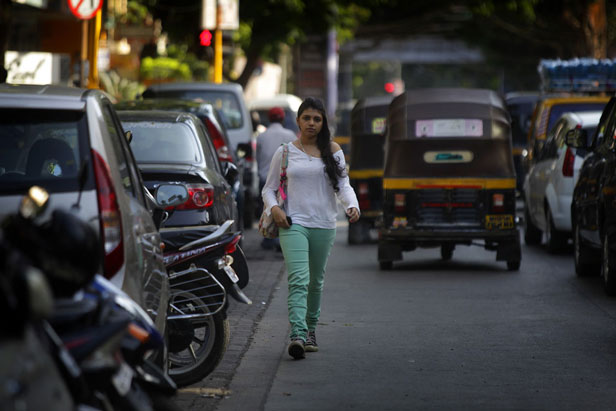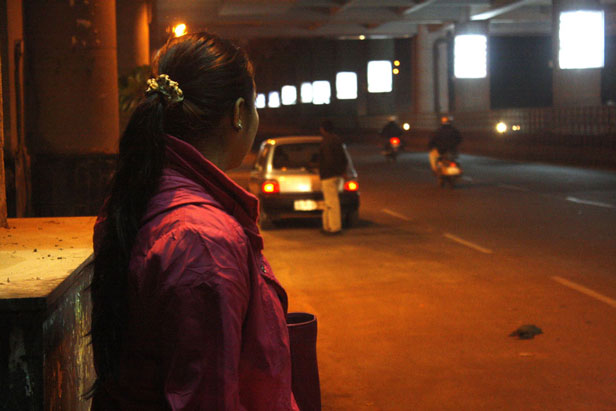
SOURCE: Hindustan Times
Alarm Bajne Se Pehle, Jaago Re
As Indian society advances and evolves, it is evident that traditional gender roles and expectations can no longer remain the norm. We look at how the conversation around gender equality in India continues to change with the times.

As Indian society advances and evolves, it is evident that traditional gender roles and expectations can no longer remain the norm. We look at how the conversation around gender equality in India continues to change with the times.
A few weeks ago while chatting with my aunt, I casually mentioned a story I was researching for – on the importance of gender sensitisation in schools across India. “In our time we were still negotiating our right to go to work, to pursue a career without judgement or intimidation,” she exclaimed. “That we can now raise a petition demanding such significant changes in the social structure is incredible.”
It got us both thinking about how far the women’s rights movement has come in India, with each subsequent generation battling rigid gender stereotypes and demanding change in their own way. Over the decades, the focus has shifted over and across several milestones in Indian history: from the abolition of patriarchal customs like Sati and reforming rigid inheritance laws to the demand for equal wages and political representation for women. “If we are negotiating bias-free workplaces and stricter laws against sexual harassment today, it’s because our predecessors fought the battle that won us the right to work in the first place,” says Nandita Kalwatia, a PhD candidate in Gender Studies at SOAS, London. “And yet, while our objectives may have evolved and diversified, several core issues still remain the same.”
Same war, different battles
With patriarchy being so deeply entrenched both in our mindset and our laws, Indians have long since accepted the current social situation as the default one. Even in the most progressive families, daughters are still entitled to far lesser than sons, from playtime and education to choosing a life partner and inheriting property. No sooner than they are of age, girls are expected to help out in household duties -- largely unpaid and unrecognized tasks that they’re meant to fulfil throughout their lives. This unequal distribution of resources and opportunities continues into adulthood with significant wage gaps and indiscriminate sexism in everyday affairs. Similarly, boys who grow up seeing their mothers unquestioningly handle all the housework will automatically grow up expecting their wives and daughters to follow suit.
As the following video demonstrates, even the smallest discriminatory act can perpetuate gender bias for generations.
Demanding tangible change
In India, the voices against gender inequality and violence have never been louder. The horrific rise in crimes against women, especially post the December-2012 gang-rape in New Delhi, has led to widespread protests and demands for change across the nation. The incident, which is often considered a landmark in the fight for women’s rights in India, has also led to a few reformative changes in the criminal justice system with provisions for stricter laws and speedier convictions.
However, legislative changes alone cannot reverse the current epidemic of violence and injustice against women. The conversation today, therefore, is no longer just about law and order; it also highlights a woman’s right to dignity, respect, and equality across all spheres of public and personal life. “While increasing representation of women in the public spheres is important and can potentially be attained through some form of affirmative action, an attitudinal shift is essential for women to be considered as equal within their homes and in broader society,” writes Smriti Sharma, research fellow, United Nations University.

SOURCE: Hindustan Times
If one wants to bring about a change, it does not have to be a big step. By maintaining gender-sensitive environments at home and in everyday life, we can contribute significantly to a more gender-just society. If we treat our children equally and set the right example for them by teaching the importance of gender equality, we can plant the seed of a gender-sensitised society.
Miles to go
Today, more and more activists and social scientists believe that compulsory gender sensitisation workshops for various civic authorities, including the police and the judiciary, is one of the most significant ways towards achieving a paradigm shift in attitude and behaviour. Tata Tea’s Jaago Re initiative aims to take this a step further by petitioning government bodies to make such programmes mandatory in schools across the country. By facilitating a behavioural change from the grassroots, such classes inculcate a sense of equality and respect in children, leading to a more harmonious and gender-just future.
Nilima Achwal, founder and CEO of Iesha Learning that provides customized gender sensitisation and sex-ed workshops for adolescents, explains how such initiatives often have immediate behavioural impact on the students. “In past workshops, we've see the classroom behaviour change completely from a lot of bullying and harassment, to an atmosphere of empathy and respect. Boys even tell us that we’ve completely changed their minds about what consent means, and girls tell us they are so much more confident during their periods.”

SOURCE: Hindustan Times
Be the change you wish to see
Of course, for this to succeed, parents and teachers have to take on a hands-on approach even outside such workshops by encouraging questions and highlighting positive examples and role models for both girls and boys. “There is too much negativity around gender and sexuality issues, and parents should remember that kids would actually like to hear it from their parents rather than from the media. They should focus less on protecting girls, and more on empowering them to be able to communicate their "no" and "yes" clearly and frankly. They should teach their boys that it's ok to have sexual feelings, as long as they always operate from a place of respect and consent,” explains Achwal.
As societies progress, the conversation around gender stereotypes will also evolve with the needs and demands of the day. India’s current spate of crimes against women along with the age-old grip of patriarchal laws and customs dictate an urgent need for gender-sensitive education and upbringing. The only way to ensure a safer and equal society is to educate tomorrow’s leaders and lawmakers against the mistakes and injustices we’ve seen and borne in the past. And raising our sons and daughters without discrimination is a giant leap in that direction.
By Sudarshana Sengupta for HT Brand Studio
Join Tata Tea's movement to make gender sensitisation programmes compulsory in schools by signing the petition now. In addition, do remember to pledge to raise gender-sensitive children and call out discrimination wherever you see it.
Remember, gender inequality lies at the heart of an unsafe society. Don't wait for the next rape to react – be a pre-activist and do your bit now.
Join the conversation at www.jaagore.com